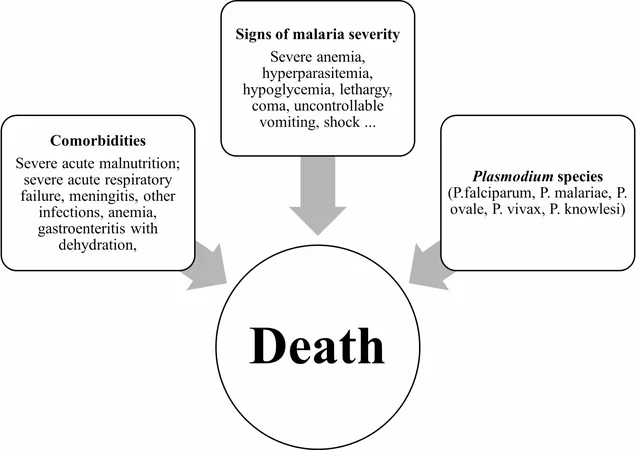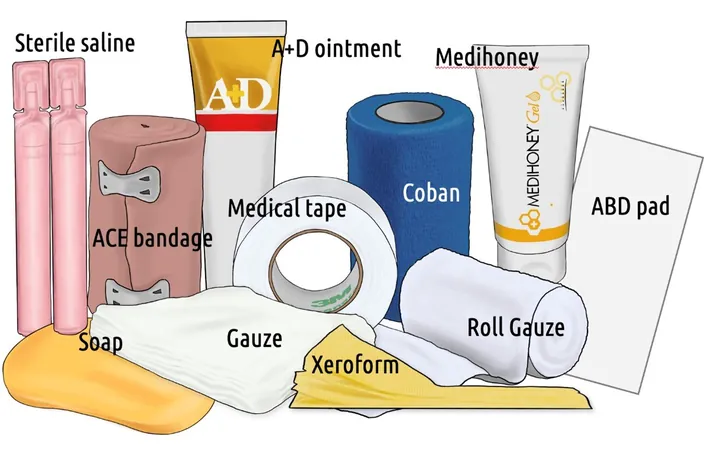
Shocking Discovery: Nearly 200 Pesticides Found in European Homes!
2025-04-11
Author: Siti
A Toxic Wake-Up Call
In a groundbreaking study, researchers have uncovered an alarming presence of nearly 200 pesticides lurking in household dust across Europe. This startling revelation calls for urgent action from regulators, who must reevaluate their approach to banning or restricting these harmful chemicals.
The Hidden Dangers
The research, which stands as the most extensive of its kind, was conducted in 2021 and analyzed dust from homes in ten European countries. It revealed a staggering total of 197 different pesticides, with more than 40% linked to severe health issues, including cancer and hormonal disruptions.
Who’s Affected?
Dust samples revealed that the number of pesticides in individual homes ranged from 25 to 121, with farming households exhibiting significantly higher concentrations. According to Prof. Paul Scheepers from the Radboud Institute for Biological and Environmental Sciences, this poses a clear warning about the potential health risks associated with pesticide mixtures.
How They Get In
But how are these toxic chemicals infiltrating our homes? Scientists suggest that everyday practices—like wearing shoes indoors and having pets—are primary culprits. Pets can unknowingly carry pesticides from outside, while dirt tracked in on shoes accumulates harmful residues.
A Chemical Cocktail
While the concentrations of individual pesticides found in the dust may appear small, the cumulative effect of multiple chemicals raises serious health concerns, especially when these pesticides are also found in high amounts on the produce we consume.
The Stubborn Legacy of DDT
Even more concerning, the study revealed that DDT, a pesticide banned in several countries since 1972, is still prevalent in the environment. This highlights an ongoing challenge: the stubborn persistence of certain chemicals, such as PFOA from the infamous "forever chemicals" category, which remain in our ecosystem and are linked to severe health risks.
A Call to Action for Regulators
Prof. Scheepers urges that regulatory bodies consider the long-lasting effects of these chemicals—especially those that tend to accumulate in the food chain. As our understanding of pesticide interactions grows, it's clear that proper assessments must include both new and historically used substances.
The Road Ahead
This groundbreaking research not only exposes the current state of pesticide contamination in European homes but also serves as a wake-up call for regulators. Immediate action is needed to protect public health, ensuring that the legacy of harmful chemicals doesn't haunt future generations.




 Brasil (PT)
Brasil (PT)
 Canada (EN)
Canada (EN)
 Chile (ES)
Chile (ES)
 Česko (CS)
Česko (CS)
 대한민국 (KO)
대한민국 (KO)
 España (ES)
España (ES)
 France (FR)
France (FR)
 Hong Kong (EN)
Hong Kong (EN)
 Italia (IT)
Italia (IT)
 日本 (JA)
日本 (JA)
 Magyarország (HU)
Magyarország (HU)
 Norge (NO)
Norge (NO)
 Polska (PL)
Polska (PL)
 Schweiz (DE)
Schweiz (DE)
 Singapore (EN)
Singapore (EN)
 Sverige (SV)
Sverige (SV)
 Suomi (FI)
Suomi (FI)
 Türkiye (TR)
Türkiye (TR)
 الإمارات العربية المتحدة (AR)
الإمارات العربية المتحدة (AR)